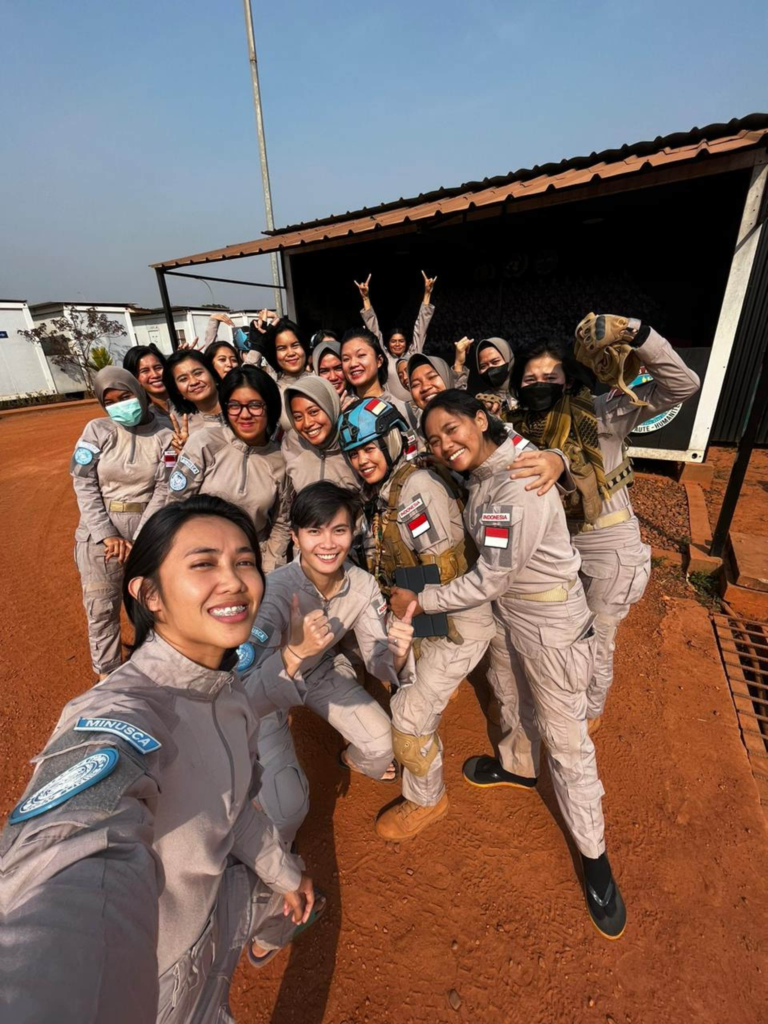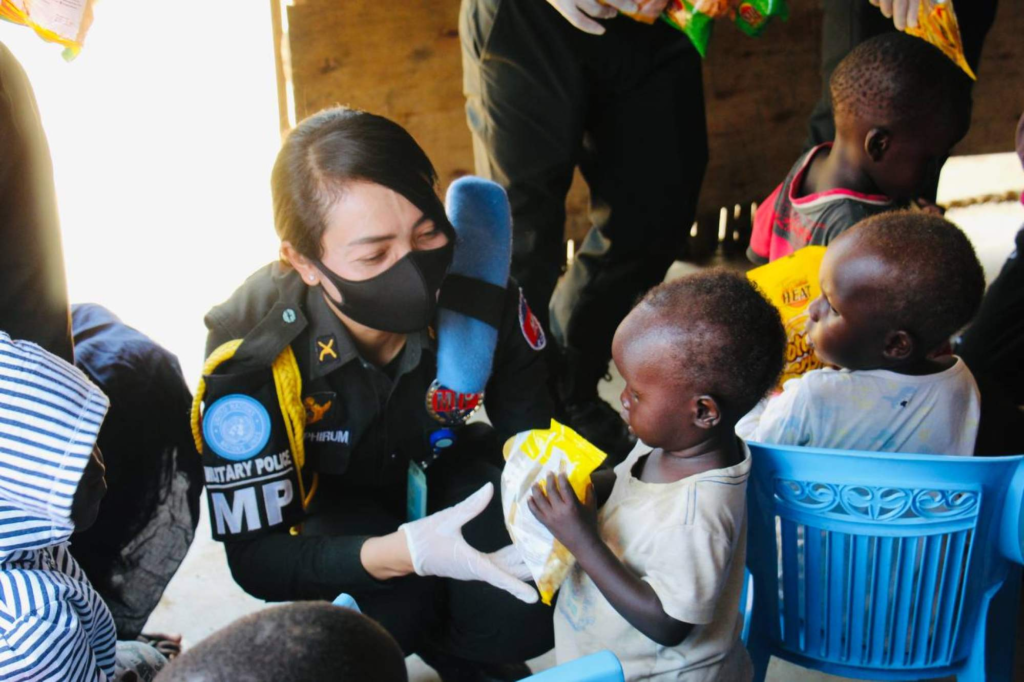Asian Women Shattering Stereotypes as UN Peacekeepers

The landscape of UN peacekeeping forces has witnessed a remarkable transformation in recent years, particularly concerning the role of Asian women. Back in 2000, the presence of women from the Asia-Pacific region within these forces was virtually nonexistent. Fast forward to March 2023, and a significant shift has occurred. A total of 2,083 Asian women are now actively participating in UN peacekeeping missions. This shift, however, is not devoid of personal sacrifices and societal expectations that these brave women must confront head-on.
Vu Nhat Huong, a 31-year-old army captain from Vietnam, embarked on a path that left her mother in tears. When she informed her family about her decision to serve as a United Nations peacekeeper, her mother, while acknowledging her strength, questioned her choice, wondering why she was opting for a path so divergent from societal norms for women. Huong, undeterred, went on to serve as a UN communications officer in the Central African Republic—a country plagued by poverty, instability, and violence.
Stationed in the capital, Bangui, Huong counted the days, 329 to be exact, on a paper calendar that separated her from her loved ones. Her experience in the Central African Republic, with its volatile security situation, scorching temperatures of up to 45 degrees Celsius (113 degrees Fahrenheit), scarce resources like water and electricity, and the stark contrast in culture, was nothing short of challenging. Communication with her family was sporadic due to unreliable internet connections. In the latter part of her mission, Huong’s health deteriorated as she contracted malaria, leading to a three-day hospital stay. Reflecting on her journey, she attests that every sacrifice was worth it. While she currently resides in Hanoi, Huong already has her sights set on another foreign mission, with the aspiration of joining the engineering contingent.
The landscape has evolved significantly from the year 2000 when Asian women’s representation in UN peacekeeping was non-existent. As of March 2023, there are 2,083 female peacekeepers from Asia. Nevertheless, this advancement is not mirrored on a global scale, where women constitute only eight percent of all uniformed UN peacekeepers, known as the “blue berets.”
Indira Putri, a 29-year-old Indonesian second lieutenant from East Kalimantan in Borneo, also faced familial questions and reservations. While her family expressed surprise and curiosity about her choice, Putri had nurtured her dream of becoming an officer since childhood. Inspired by a female police officer who played an active role in her school, Putri embarked on her journey to become a UN peacekeeper in the Central African Republic in September of the previous year. Her motivation lay in the prospect of aiding those impacted by conflict and deprived of basic human rights such as adequate housing and clean water.
Putri’s experience in the Central African Republic, especially upon her arrival in Bangui, was a culture shock. The dirt roads, the bustling crowds, and the curious stares were worlds apart from her previous encounters. Tasked with managing the UN camp and overseeing operational matters, she gradually adapted to her surroundings, and her family, over 10,000 kilometers away, gained a better understanding of her work. Initially, they were anxious, constantly keeping in touch with her. However, Putri reassured them, requesting them not to worry excessively.
In July, representatives from the Association of Southeast Asian Nations (ASEAN), consisting of 10 countries and East Timor as an observer state, convened in Indonesia for a high-level meeting. The gathering aimed to emphasize the importance of incorporating a gender perspective into addressing security challenges, including those related to climate, cybersecurity, and violent extremism, across the region. This meeting followed the launch of ASEAN’s Regional Plan of Action on Women, Peace, and Security in December, a framework aimed at promoting women’s representation and involvement.

Major Sen Sophirum, aged 35, hails from a small village in Kampong Thom province, central Cambodia. Her journey into the military was fraught with opposition from her community, rooted in the belief that military service was solely a man’s domain. At the tender age of 19, she found herself wavering under the weight of these societal expectations. Yet, with unwavering support from her mother and close relatives, she summoned the courage to persevere.
Sen Sophirum has since taken part in two previous foreign missions and currently serves as a UN military observer in South Sudan. Here, she has faced the challenges posed by civil conflict and its consequences. Her commitment to the military was further cemented when she married another soldier during a break back home. Sen Sophirum acknowledges the complexities of balancing her military duties with family life, particularly now that she’s planning to have children. While she aims to continue supporting peacekeeping efforts, her immediate focus has shifted toward family.
The experiences of these Asian women in UN peacekeeping underscore the immense significance of their contributions. While breaking barriers and challenging societal expectations, they have not only demonstrated their resilience but also showcased the integral role women play in such missions. With their active involvement, these women are advancing the cause of gender equality, not just within the UN but also within their home countries. Their journey is a testament to the power of determination and the enduring quest for a more equitable world.
Re-reported from the article originally published in SCMP








